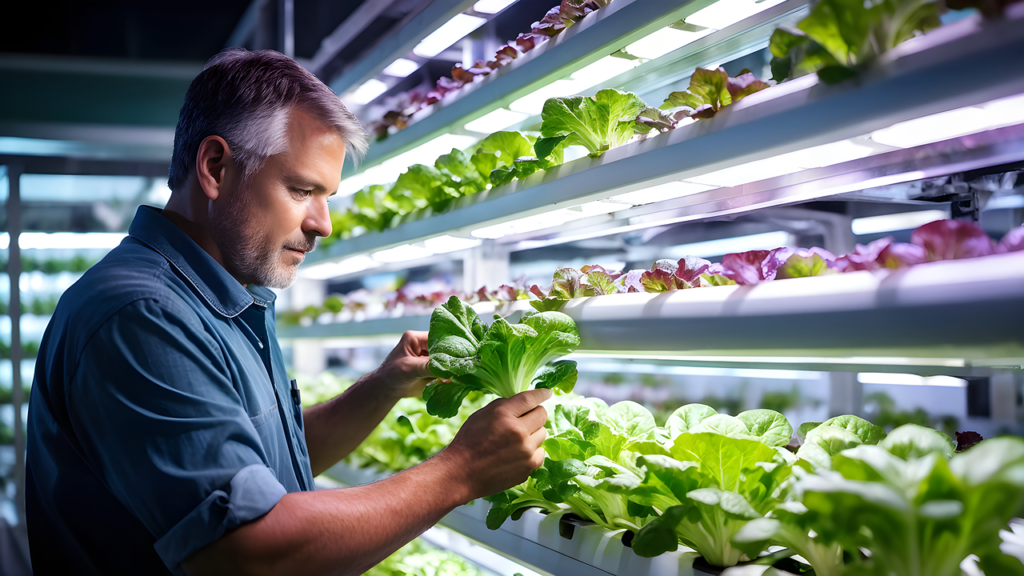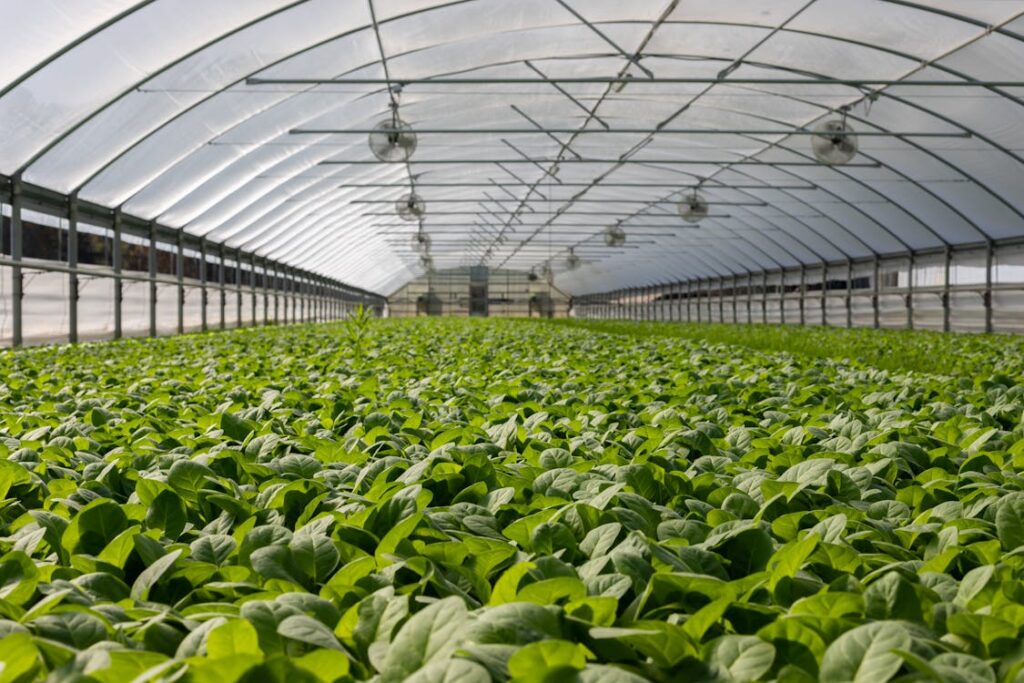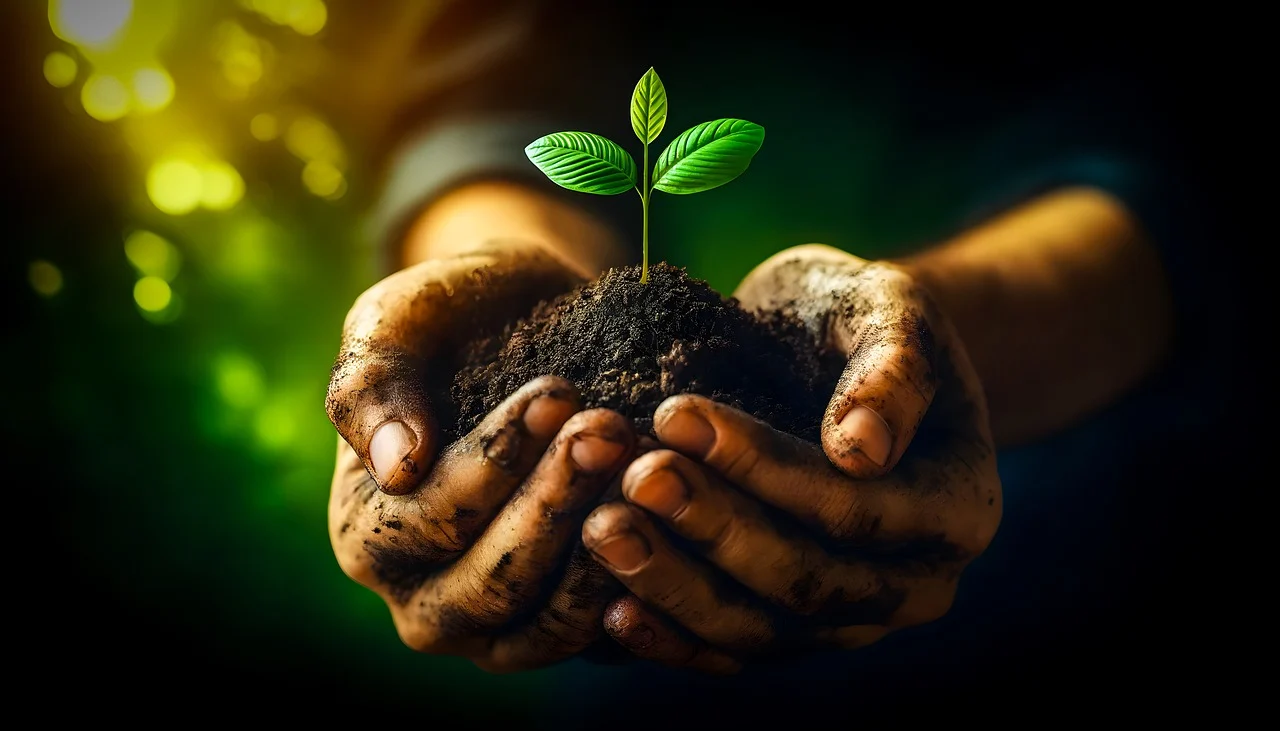
Introduction to Organic Farming
Organic farming isn’t just about growing crops without synthetic chemicals; it’s a holistic approach to agriculture that focuses on sustainability, health, and harmony with nature. This method relies on natural processes to build soil health, manage pests, and produce high-quality food. But why is it important?
What is Organic Farming?
Organic farming is an agricultural system that aims to produce food in a way that maintains ecological balance and minimizes environmental impact. It avoids the use of synthetic fertilizers, pesticides, and genetically modified organisms (GMOs), relying instead on natural fertilizers, crop rotation, and biological pest control. “Sustainable Agriculture Through Organic Farming You Need to Know”
The Importance of Organic Farming
With increasing concerns about environmental sustainability, organic farming has gained popularity as a solution to reduce pollution, conserve water, and promote soil health. It also offers consumers healthier and more nutritious food options, free from harmful chemicals.
History and Evolution of Organic Farming
Early Beginnings
The roots of organic farming can be traced back to ancient agricultural practices that relied on natural cycles and biodiversity. However, it wasn’t until the early 20th century that the concept of organic agriculture began to take shape formally, with pioneers like Sir Albert Howard and J.I. Rodale promoting soil health and composting.
Growth and Popularity Over the Decades
The post-World War II era saw the rise of conventional farming, driven by chemical fertilizers and pesticides. In response, the organic movement gained momentum, emphasizing the dangers of chemical dependency and advocating for sustainable practices. Today, organic farming is a global phenomenon with stringent standards and a dedicated consumer base. “Sustainable Agriculture Through Organic Farming You Need to Know”
Principles of Organic Farming
Soil Health
Healthy soil is the foundation of organic farming. Techniques like composting, green manuring, and crop rotation help enhance soil fertility, structure, and microbial activity, reducing the need for chemical inputs.
Biodiversity
Organic farms often support a diverse range of plants and animals, which helps create a balanced ecosystem. This diversity can reduce the spread of pests and diseases, improve pollination, and contribute to overall farm resilience.
Ecological Balance
Maintaining an ecological balance is crucial in organic farming. This means using practices that do not deplete resources or harm the environment, such as conserving water, avoiding deforestation, and protecting wildlife habitats. “Sustainable Agriculture Through Organic Farming You Need to Know”

Key Practices in Organic Farming
Crop Rotation
Crop rotation involves growing different types of crops in succession on the same land. This practice helps manage soil fertility, reduces pest buildup, and improves soil structure.
Green Manuring
Green manuring involves growing specific crops, like legumes, which are then plowed back into the soil to improve its organic matter content. This enriches the soil with essential nutrients and enhances its structure.
Organic Pest Control
Organic farmers use natural methods to control pests, such as introducing beneficial insects, using traps, or planting pest-repellent crops. This reduces the reliance on harmful chemical pesticides.
Benefits of Organic Farming
Environmental Benefits
Organic farming reduces pollution and soil erosion, conserves water, and uses less energy. It also promotes biodiversity and helps maintain healthy ecosystems.
Health Benefits
Organic produce is free from synthetic pesticides and GMOs, making it a healthier option for consumers. Studies suggest that organic foods may contain higher levels of certain nutrients, like antioxidants.
Economic Benefits for Farmers
While the initial costs of organic farming can be high, it often leads to greater profitability over time. Organic produce usually commands higher prices, and farmers can benefit from lower input costs in the long run.
Challenges in Organic Farming
High Initial Costs
Transitioning to organic farming can be costly due to certification fees, investment in organic inputs, and the time required to build soil fertility.
Certification Process
Getting organic certification is a rigorous process that requires adherence to strict standards. This can be challenging, especially for small-scale farmers.
Pest and Weed Management
Managing pests and weeds without synthetic chemicals is one of the biggest challenges in organic farming. It requires careful planning, monitoring, and the use of alternative control methods.
Comparing Organic and Conventional Farming
Differences in Techniques
Conventional farming often relies on synthetic inputs and monocultures, while organic farming focuses on natural processes and diversity. This fundamental difference affects everything from soil health to pest management.
Impact on the Environment
Organic farming tends to have a lower environmental impact, reducing pollution and promoting soil health. In contrast, conventional farming can lead to soil degradation, water pollution, and loss of biodiversity.
Nutritional Value of Produce
Some studies suggest that organic produce may have higher nutritional value, with increased levels of vitamins, minerals, and antioxidants. However, more research is needed to fully understand these differences.
Role of Organic Farming in Sustainable Agriculture
Contribution to Sustainability
Organic farming practices support sustainable agriculture by preserving soil health, reducing chemical inputs, and promoting biodiversity. This contributes to the long-term viability of farming systems.
Reducing Carbon Footprint
By avoiding synthetic fertilizers and promoting soil health, organic farming can reduce greenhouse gas emissions and increase carbon sequestration in soils.
Promoting Biodiversity
Organic farms often serve as havens for wildlife, supporting a variety of plant and animal species. This biodiversity is crucial for ecosystem health and resilience.
Organic Farming and Climate Change
Mitigating Climate Change
Organic farming can help mitigate climate change by reducing emissions and increasing the soil’s capacity to store carbon. Practices like cover cropping and reduced tillage also help protect the soil from erosion and degradation.
Adapting to Climate Variability
Organic farming practices, such as diversifying crops and improving soil health, can make farms more resilient to extreme weather conditions, helping them adapt to the changing climate.
Organic Certification: Standards and Requirements
What is Organic Certification?
Organic certification is a process that verifies that a farm or product meets the specific standards set for organic agriculture. These standards vary by country but generally prohibit the use of synthetic chemicals and GMOs.
Steps to Get Certified
- Application: Submit an application to a certifying body.
- Inspection: Undergo an on-site inspection to verify compliance.
- Approval: If the farm meets the standards, certification is granted.
Maintaining Certification
To maintain certification, farmers must keep detailed records, undergo annual inspections, and continue to adhere to organic standards.
The Market for Organic Products
Global Demand and Trends
The demand for organic products is growing worldwide, driven by increasing consumer awareness of health and environmental issues. This has led to a booming market for organic food, cosmetics, and textiles.
Growth in Organic Food Market
The organic food market has seen significant growth over the past decade, with more consumers willing to pay a premium for products labeled organic.
Organic Labeling and Consumer Trust
Organic labels are crucial for building consumer trust. Certifications provide assurance that the products meet specific organic standards, influencing purchasing decisions.
Technological Innovations in Organic Farming
Precision Farming Techniques
Technological advancements, such as GPS-guided equipment and drones, are helping organic farmers monitor crops, optimize planting, and manage resources more efficiently.
Technological Innovations in Organic Farming
Organic Fertilizers and Bio-Pesticides
Organic farming relies heavily on natural fertilizers, such as compost and manure, to nourish the soil. Recently, advancements have led to the development of more efficient organic fertilizers that release nutrients slowly and steadily, promoting long-term soil health. Similarly, bio-pesticides, derived from natural sources like plants, bacteria, and minerals, are becoming more effective in controlling pests without harming beneficial insects or the environment.
The Role of AI and Data Analysis
Artificial Intelligence (AI) and data analysis are revolutionizing organic farming. These technologies can predict weather patterns, monitor soil health, and even identify pest infestations early, allowing farmers to make informed decisions and reduce crop losses. For example, AI-powered sensors can measure soil moisture levels and nutrient content, helping farmers optimize water usage and fertilizer application, thereby enhancing productivity while adhering to organic principles.
How to Start an Organic Farm
Choosing the Right Location
Location is crucial for an organic farm’s success. Consider factors like soil quality, water availability, and climate. Ideally, choose a location with fertile soil, access to clean water, and a climate suitable for the crops you plan to grow. Avoid areas with potential contamination from nearby conventional farms, as this can affect your ability to obtain organic certification.
Selecting Crops
Choose crops that are well-suited to your local climate and soil conditions. It’s also important to consider market demand. Popular organic crops include vegetables, fruits, herbs, and grains. Diversifying your crop selection can help improve soil health and reduce the risk of pests and diseases.
Financial Considerations
Starting an organic farm requires a significant financial investment, especially during the transition period before certification is achieved. Develop a detailed business plan that includes startup costs, expected revenue, and a timeline for achieving profitability. Look into grants, loans, and other financial assistance programs available for organic farmers.
Success Stories in Organic Farming
Inspirational Case Studies
Many organic farmers have overcome challenges to achieve remarkable success. For example, a small-scale farmer in India transformed his barren land into a thriving organic farm using traditional composting techniques and innovative water management. Another case is a former software engineer in the United States who turned his passion for sustainable agriculture into a profitable organic vegetable farm, supplying local markets and restaurants.
Lessons from Successful Organic Farmers
Successful organic farmers emphasize the importance of patience, persistence, and continuous learning. They often advocate for starting small, experimenting with different crops and techniques, and gradually expanding the operation. Building a strong network of mentors and peers in the organic farming community can also provide valuable support and guidance.
Conclusion and Future of Organic Farming
Organic farming is more than just a method of food production; it’s a movement towards a healthier and more sustainable world. While it faces challenges such as high initial costs and rigorous certification processes, the long-term benefits for the environment, human health, and the economy are undeniable. As consumer demand for organic products continues to grow, and as technological innovations make organic practices more accessible and efficient, the future of organic farming looks promising.
Supporting organic farming means supporting a future where agriculture works in harmony with nature. Whether you’re a farmer, a consumer, or an advocate, your choices and actions can help shape the future of food production.
FAQs
1. What are the main benefits of organic farming?
Organic farming benefits the environment by reducing pollution, conserving water, and promoting soil health. It also produces healthier food without synthetic chemicals and supports the local economy by providing better opportunities for small-scale farmers.
2. How does organic farming impact the environment?
Organic farming helps preserve biodiversity, reduces soil erosion, and lowers greenhouse gas emissions. By avoiding synthetic fertilizers and pesticides, it protects water sources and enhances soil fertility, contributing to a healthier ecosystem
3. Is organic farming more expensive than conventional farming?
The initial costs of organic farming can be higher due to certification fees, organic inputs, and the transition period required for soil health restoration. However, over time, organic farms often become more cost-effective due to reduced input costs and premium prices for organic products.
4. Can organic farming feed the world’s growing population?
While organic farming alone may not be able to meet the global demand for food, it can play a crucial role in a diversified and sustainable food system. By combining organic practices with other sustainable methods, we can create a resilient and productive agricultural system.
5. What should I look for in organic labels?
Look for certification logos from recognized bodies, such as USDA Organic, EU Organic, or the Soil Association. These labels indicate that the product meets strict organic standards, including restrictions on synthetic chemicals, GMOs, and artificial additives.

